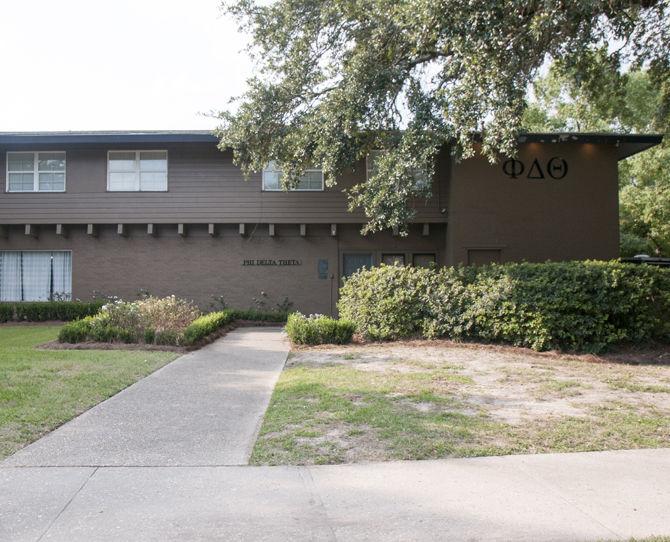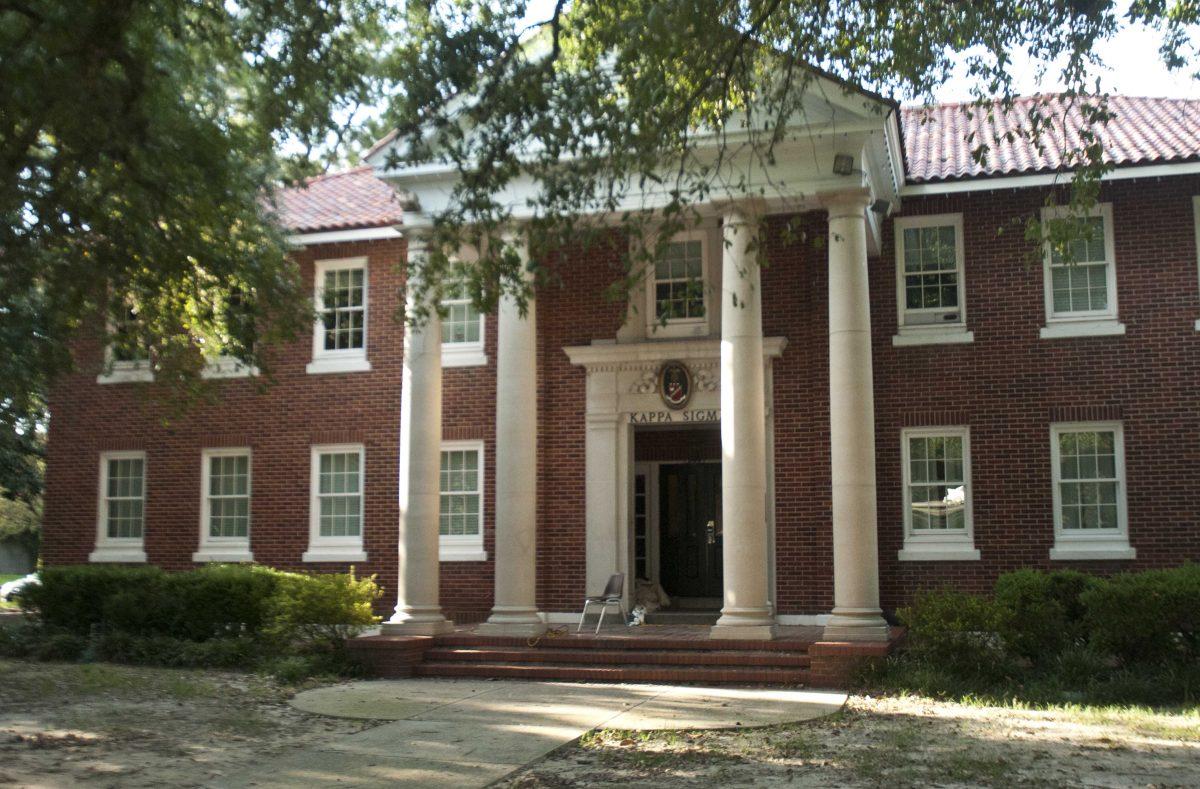Less than a year before the potential hazing-related death of University student Maxwell Gruver at the Phi Delta Theta house, the fraternity was placed under a month-long interim suspension following a complaint about alleged hazing of new members.
Associate Dean of Students and Student Advocacy and Accountability Director in 2016, Jonathan Sanders, informed the Phi Delta Theta fraternity of an ordered interim suspension of all chapter events on Nov. 15, 2016. The chapter was placed under an investigation per the interim suspension, according to emails obtained via public records request.
On Oct. 14, 2016, Associate Dean and Greek Life director Angela Guillory addressed the chapter by email on behalf of the Greek Accountability Team regarding a possible risk management violation after receiving a complaint report.
According to the complaint, it was alleged new members were required to buy chewing tobacco and cigarettes, keep them on them and give them to the older fraternity brothers. The report alleged pledges were required to be at the fraternity house at 6 a.m. every day and report to tailgates at 1 a.m. before home games.
Further, the report alleged pledges were to be available to the older fraternity brothers at any time of the day, excluding times when pledges were in class, were 24 hours from a test or when parents came into town. The report stated pledges were called to deliver food and pick up brothers from bars at 3 a.m., and they were “exhausted all of the time.”
In the email, Guillory said the University’s partnership process allows organizations the opportunity to facilitate their own investigations and provide Greek Life with a report.
After receiving no response from the chapter, on Oct. 25, 2016, Guillory said in an email to a redacted individual, it was necessary to “move to the right hand side of the chart and charge the chapter with hazing,” per the partnership process on behalf of the Greek Accountability Team. She said the chapter had until 4:30 p.m. on Oct. 27, 2016, to provide a report.
The suspension included no communication between newly initiated members and active members through direct, virtual or third party contact outside of approved ritual and chapter meetings at the fraternity house. The chapter was not allowed to host or participate in social activities, including exchanges, socials or parties, both on and off campus, according to the documents obtained by public records request.
Additionally, the chapter was restricted from participating in intramural activities and meetings not part of the investigation. The chapter could, with Alumni Advisory board members present, conduct ritual meetings to facilitate new member education and carry out essential chapter business.
All chapter functions during the suspension had to be approved by Greek Life in writing, 24 hours in advance.
Then-Phi Delta Theta Fraternity president submitted an incident report on Oct. 27, 2016 detailing investigation results from the complaint against the chapter. The report stated a number of new members who did not smoke tobacco or cigarettes had them during interviews for the investigation, even after the chapter had been addressed of that issue earlier in the semester, which led the fraternity to believe “isolated instances” of the issue occurred.
The report stated both active and new members were proportionally assigned shifts and overnight watches because there had been a reports of stolen tailgating equipment from the Parade Ground. However, it was discovered active members were skipping shifts and leaving overnight watches to the new members.
The president reported while no new member had been asked to be available at all times, it was discovered active members had been calling new members to run errands. This was an issue that had been a problem in the chapter the report stated.
A program the chapter established included a rotation of designated driver shifts, where both active and new members had to sign up for multiple shifts in the semester to serve as designated drivers for other members. Typically, the program required two designated drivers each night. It was reported on nights when both an active and new member were scheduled, only new members were being called, possibly even by active drivers telling others to call new members first.
“We believe a number of these issues are the result of a lack of management of these programs and are actively taking steps to ensure more oversight by the Executive Board of our tailgate chairman and risk management chairman for the designated driver program,” the president said in the report.
The fraternity’s incident report, submitted by the fraternity, said allegations of early morning requirements were discovered to be false, as no new members said they had to come to the house at 6 a.m. Only five members lived in the house at the time and said they did not see that issue occur.
Results of further investigation were submitted Nov. 7, 2016. A second investigation was conducted on Nov. 2, 2016, at a regularly scheduled chapter meeting. Per suggestion by the Greek Accountability Team, active members were questioned, as a group, separately from new members. Each group was asked about the specific allegations or conduct similar to the allegations.
While some members reported conduct the fraternity felt did not “form to substance of the allegation,” such as borrowing a cigarette from a new member or riding with a new member to the grocery store when that member was already going grocery shopping, one member did say he asked a new member to purchase cigarettes for him on one occasion.
One member said he allowed other members to anonymously report to him instances related to the allegations, as he said he knew certain members might be hesitant to report other members in a public setting.
According to the further investigation report, when new members were questioned, without active members present, they said they were not asked to buy tobacco or cigarettes. Two new members reported instances where an active asked if they had a cigarette and the new members who smoked would offer one, which was consistent with reports from the actives. New members emphasized they remember being told at induction “they were not servants” and never felt pressured to do anything, like be available at all times, according to the report.
However, after the investigation meetings, anonymously submitted reports showed discoveries of truth to some of the allegations. Multiple individuals reported having knowledge of one alumnus asking new members for rides and/or cigarettes. Multiple individuals reported knowledge of requirements for new members to purchase a certain member meals. Two members individually reported knowledge of requiring a new member to bring a certain member food without paying for it, and bring a member to get food and not pay for it, reported respectively.
Once those allegations were received, each active member was contacted regarding the allegations. The three members maintained the alleged events did occur, even though the new members were not obliged to participate in them.
Sanders approved a request on Nov. 16, 2016 to allow the chapter to conduct business related to officer transition and closing out the semester, but the suspension still applied for social and intramural events.
The University removed the “Interim Suspension of Activities for all chapter events” by letter from Sanders on Dec. 21, 2016. The chapter was approved to conduct business and resume normal activities in line with the University policies.
LSU Phi Delta Theta faced hazing allegations, interim suspension a year before pledge’s death
October 4, 2017
Police investigate the death of an LSU student on Wednesday, Sept. 14, 2017, at the Phi Delta Theta fraternity house.
More to Discover








